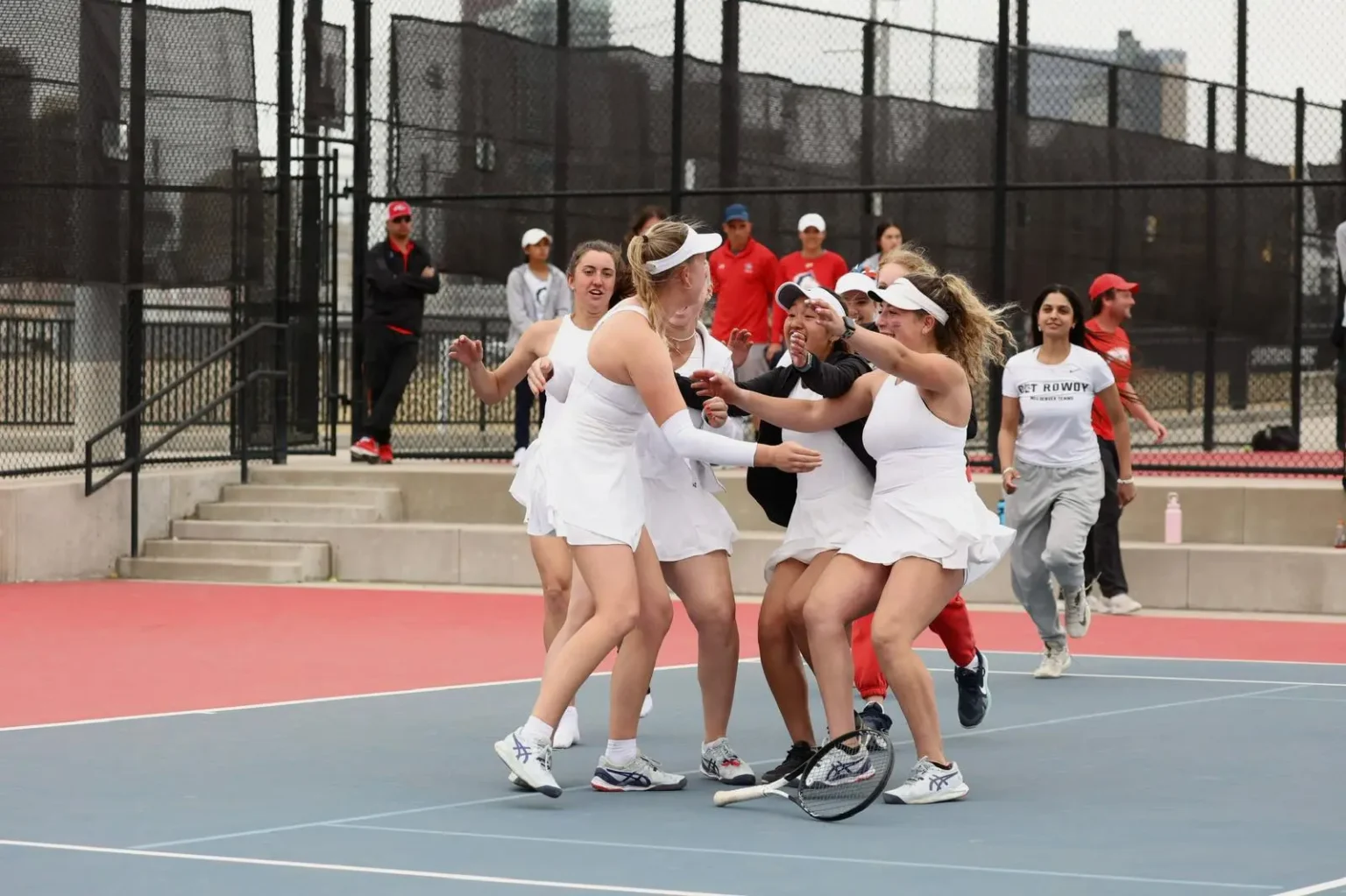
Best Tips for Time Management for Student Athletes
Our complete guide with proven strategies, essential resources, and real examples to help student-athletes balance academics and athletics
Being a student-athlete is a balancing act. Between schoolwork, training sessions, matches, workouts, and social life, it often feels like there just aren’t enough hours in the day. The stress of managing all these commitments can be overwhelming, and without a solid plan, it’s easy to fall behind. That’s why mastering time management is key to achieving success during university.
With years of experience in this area, we bring you the most effective tips for time management for student-athletes.
Why is Time Management Important?
Student-athletes juggle multiple responsibilities, and poor time management can lead to missed deadlines, fatigue, and burnout. Here’s a look at just some of your weekly commitments:
1. Athletic commitments
- Training sessions
- Matches
- Video analysis sessions
- Strength and conditioning workouts
- Injury treatment and prevention
- Team meetings
- Travel for away matches or tournaments
2. Academic commitments
- Lectures
- Group meetings for projects
- Coursework, studying, and preparing presentations
- Optional tutoring sessions
3. Job or internship responsibilities
With an organised plan, you can reduce stress, improve performance, and still find time for rest. The key is to work smarter, not harder.

Essential Strategies for Time Management for Student-Athletes
1. Prioritise Tasks
- Identify what’s most important each day and tackle high-priority tasks first.
- Highlight major assignments, exams, training sessions, and matches so that you meet deadlines without feeling rushed.
- Complete tasks according to deadlines.
2. Plan Ahead and Create a Daily Schedule
- Use a planner or digital calendar to map out your week. Assign specific time blocks for studying, training, and social time. Colour-code your tasks to easily differentiate between academic or sport-related activities.
- Apps like Google Calendar, Notion, or Pomodoro can help you organise your schedule and improve your productivity.
- Check your calendar regularly during the day to make sure you don’t forget anything.
- Creating a to-do list and marking tasks as completed not only helps you keep track of what you do, but also makes you feel accomplished and motivated.
- Before bed, take a few minutes to review your schedule for the next day.
3. Work with Your Natural Productivity Rhythms
- Some student-athletes are morning people: they prefer to wake up early and are more productive in the first hours of the day. While others have a hard time waking up early and prefer to stay up late working on assignments. Identify your peak productivity times.
- Schedule your most challenging tasks during your peak productivity hours.
- Example: If you are a night person, tackle demanding assignments or studying after dinner, and reserve mornings for lighter tasks like reviewing notes or household chores.
4. Meal Prep
- Preparing meals in advance saves time and ensures you’re fuelling your body for optimal performance. When you are in a rush, it is common to just order food online or prepare something quick like a pot noodle. But this is not ideal for your health and performance.
- Cook meals in batches and store them in separate portions. You don’t need to cook for the whole week if that is too much – you can just do it for a couple of days.
- Plenty of online meal prep resources are designed specifically for athletes, helping you fuel your body properly and optimise recovery.
- Keep healthy snacks on hand to fuel your body throughout the day.
- Example: On Sunday, prepare a week’s worth of lunches so you can grab and go between lectures and training.
5. Maximise Downtime
- Use travel time to review notes, work on assignments, or catch up on readings. Long bus or plane journeys are excellent opportunities for productivity. While staying in a hotel, set aside some quiet time to study. Being productive when travelling is not easy, but it truly makes a difference.
- Take advantage of small breaks between lectures or activities to be productive instead of scrolling through social media.
- Example: If you have a 30-minute break between lectures, find a nice sunny area on campus, put your headphones on, and get a few tasks done.
6. Eliminate Distractions
- Set your phone on ‘Do Not Disturb’ while studying or during productivity times. Use focus apps to avoid distractions.
- Go to a library or a study hall instead of staying at home, where it’s easy to get distracted by your bed or TV. Being in an environment where others are working can create a sense of pressure to stay productive. If you don’t like studying around other people, book a study room for yourself. Find a place that works for you.
7. Communicate with Your Professors about Your Athletic Commitments
- In the first week of classes, introduce yourself to your lecturers and bring a copy of your schedule. This just takes a couple of minutes, but it will have an impact on your term. Having a good relationship with them makes it easier to request extensions when necessary.
- Email your lecturers if you’ll be missing class due to athletic commitments.
- Reach out early to discuss any potential conflicts with exams or major assignments. If they see you have an interest in the class and you are not trying to take advantage of the situation, they will help you work it out.
- Invite them to your home matches/meets. What? Yes, lecturers will show up and support you.
8. One of the hardest tasks: Learn to Say No!
- Prioritise commitments and don’t overextend yourself.
- It’s okay to decline an event if it interferes with training or academics. Don’t let social pressure pull you away from your goals.
9. Seek Support When Needed
- Utilise university resources such as tutoring centres, academic advisors, and mental health support.
- If you’re feeling overwhelmed, talk to teammates who have experienced similar challenges for advice and encouragement.

How Keystone Sports Can Help You
Time management for student-athletes is challenging, but you don’t have to do it alone. Keystone Sports guides you through your university process. Whether it’s advising on sports scholarships, helping you find the right university fit, or connecting you with expert mentors, we’re here to support your journey.
Are you a Keystone Sports client? Check out Keystone Sports Campus, where you can find more personalised tips and strategies from our experts.
Time management isn’t about packing your schedule with tasks – it’s about using your time wisely. By planning, staying disciplined, and making time for rest, you can achieve your goals. So, start today, and remember: work smarter, not harder!
Share this article:

About the author
Lorena Montañés
Lorena Montañés, SEO Specialist at Keystone Sports, played DI football at California State University, Fresno, while earning degrees in Mass Communication & Journalism and Psychology. She later earned an MBA in Business Analytics while coaching at a Division II university. Now, her goal is to encourage other student-athletes to pursue their dreams and have a life-changing experience.
More related articles

Wellbeing and mental health in student athletes
Mental health in sports is an important topic receiving more and more attention today due to its impact on overall wellbeing. Immie from Keystone Sports Germany explains further the various aspects of mental health in student athletes.

The Keys to Success During the College Sports Season
Learn differences between in-season and out-of-season and what it takes to end your competitive year successfully! Get the best tips and guidance in our article by Immie Cowper from Keystone Sports Germany.

Why You Should Play Summer League Football in the USA
The Summer League is in full swing with matches and tournaments happening all over America. But what is the Summer League, and what are the benefits of participating in it as a university football player?

